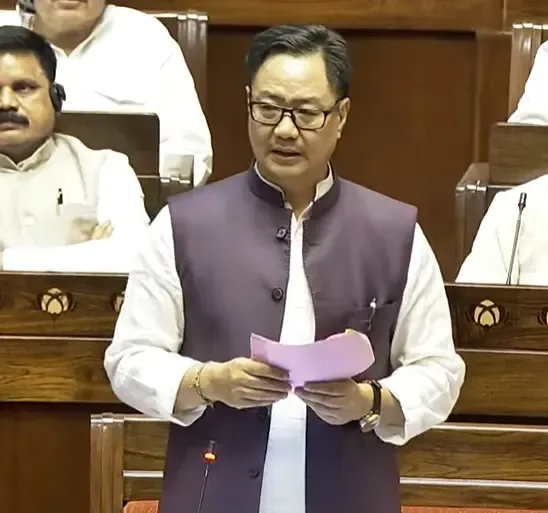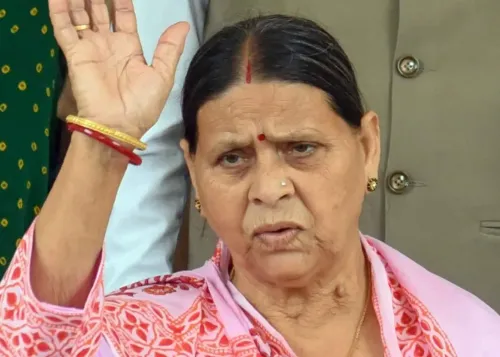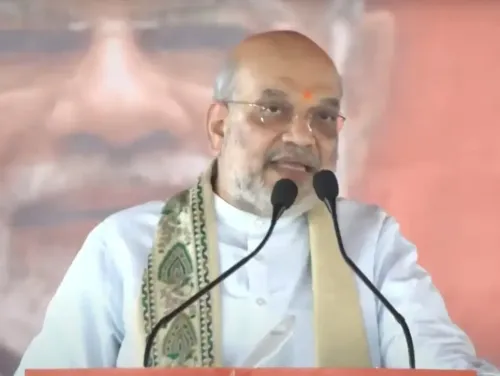Kiren Rijiju: Non-Muslim Intervention in Waqf Affairs is Prohibited

Synopsis
Key Takeaways
- Kiren Rijiju defends the Waqf Bill against claims of harming Muslim interests.
- Non-Muslims have no role in Waqf affairs.
- New provisions require proof of ownership for Waqf designation.
- The bill enhances accountability and transparency in management.
- Public consultations led to significant input for the bill.
New Delhi, April 3 (NationPress) Union Minority Affairs Minister Kiren Rijiju on Thursday dismissed allegations that the Waqf (Amendment) Bill, 2025, would adversely affect Muslim interests. He emphasized that non-Muslims cannot meddle in Waqf affairs, as the management and beneficiaries are exclusively Muslims.
Rijiju addressed the concerns and criticisms surrounding the legislation following its introduction in the Rajya Sabha.
He refuted claims that the bill would harm Muslim interests and reiterated that non-Muslims cannot interfere in Waqf affairs, maintaining that the management, creation, and beneficiaries would remain solely within the Muslim community.
Rejecting assertions that the bill is unconstitutional or infringes on rights, Rijiju stated, "I categorically reject all these allegations. Any Muslim who wishes to manage their property through a trust can do so without restrictions."
He clarified that the Waqf Board operates like a Charity Commissioner to ensure proper management of Waqf properties. The bill aims to provide accountability, transparency, and enhance the capabilities within the Waqf Board.
Rijiju stressed that ownership proof will now be mandatory before a property is designated as Waqf, thus eliminating the previous provision where any claim by the Waqf Board automatically designated it as Waqf property.
He mentioned that the bill was meticulously reviewed prior to its introduction, receiving over one crore memoranda and suggestions from the public, with a Parliamentary Committee engaging in consultations across ten cities: Mumbai, Kolkata, Ahmedabad, Hyderabad, Patna, Chennai, Bengaluru, Guwahati, Bhubaneswar, and Lucknow.
Reflecting on past reform efforts concerning the Waqf Board, he cited the 1976 Congress-led government’s inquiry commission and the 2006 Sachar Committee Report, which recommended enhancement and digitization of the Waqf Board. During that time, Waqf properties numbered 4.9 lakh, generating an annual income of Rs 163 crore. The Sachar Committee estimated that these properties, if properly assessed, could yield Rs 12,000 crore annually. Currently, Waqf properties have expanded to 8.72 lakh, indicating that revenue potential has significantly increased.
Rijiju also referenced the JPC led by K. Rehman Khan, a former Minority Affairs Minister, which identified insufficient infrastructure, manpower, and funding within the Waqf Board. The JPC had proposed the establishment of a centralized data bank and structured leasing policies for Waqf properties.
He asserted that the Modi government is implementing recommendations that previous Congress and UPA governments neglected.
Rijiju highlighted that the 2013 UPA government initiated Waqf Board reforms ahead of elections, forming a JPC with 13 members, conducting 22 meetings, and consulting 14 states. "In contrast, the current JPC had 31 members, convened 36 meetings, engaged with 284 delegations and organizations, and consulted 25 states, five minority commissions, multiple MLAs and MPs," he said.
The number of memoranda submitted has surged from 32 in 2013 to over one crore now, he noted.
Rijiju also remarked that the BJP government has the determination to implement these long-awaited reforms. "These committees were established during Congress and UPA rule, yet they failed to act. The Narendra Modi government is realizing these recommendations that the Congress did not dare to execute," he stated.
According to the Minister, the bill guarantees improved accountability and efficiency in the management of Waqf properties, addressing long-standing issues while protecting the rights and autonomy of the Muslim community.









